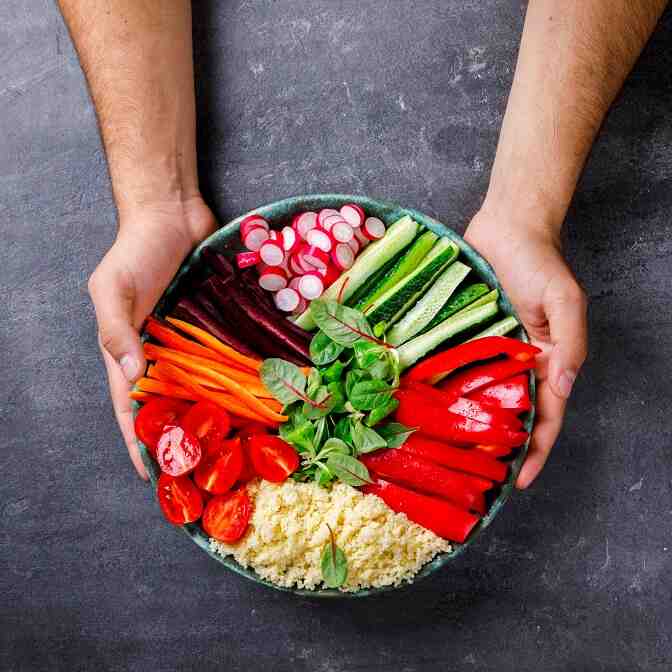When it comes to weight loss and overall health, a faster metabolism can be a game changer. Your metabolism is the process by which your body converts food into energy, and a higher metabolic rate means that your body burns more calories, even while at rest. While genetics play a role in your metabolic rate, there are natural ways to boost it and increase fat burning. In this article, we’ll explore several effective, natural methods to rev up your metabolism and support fat loss.
1. Increase Physical Activity
Exercise is one of the most effective ways to boost your metabolism. Regular physical activity increases your calorie burn both during and after your workout. There are several types of exercise that can help speed up your metabolism:
Strength Training
Building muscle through strength training is an excellent way to increase your resting metabolic rate. Muscle tissue burns more calories than fat tissue, even when you’re not working out. As you build lean muscle mass, your body becomes more efficient at burning fat, leading to a long-term boost in metabolism. Aim for strength training exercises at least 2-3 times per week to see noticeable changes.
High-Intensity Interval Training (HIIT)
HIIT is a form of exercise that alternates between short bursts of intense activity and periods of rest or lower-intensity activity. This type of training has been shown to increase metabolism for hours after the workout is over, a phenomenon known as excess post-exercise oxygen consumption (EPOC). EPOC helps the body burn more calories even after you’ve finished exercising. Incorporating HIIT into your routine can help burn fat more effectively and increase your overall calorie burn.
Aerobic Exercise
Aerobic activities like walking, running, cycling, and swimming also help boost metabolism. While the effects may not be as intense as HIIT, aerobic exercise can increase the rate at which your body burns calories, particularly when performed regularly.
2. Eat Protein-Rich Foods
Eating protein-rich foods can give your metabolism a natural boost. This is because your body requires more energy to digest protein than it does for fats or carbohydrates. The thermic effect of food (TEF) refers to the energy expended during digestion, and protein has a higher TEF than other macronutrients.
Including lean protein sources such as chicken, turkey, fish, eggs, legumes, and tofu in your meals can increase your metabolism by up to 30%. This means that by consuming more protein, your body will burn more calories during the digestion process.
Additionally, protein helps build and repair muscle, which, as mentioned earlier, can lead to an increased resting metabolic rate. So, not only will protein help you burn more calories in the short term, but it will also support long-term fat loss.
3. Stay Hydrated
Drinking enough water is essential for overall health, but it can also help boost your metabolism. Studies have shown that drinking water can temporarily increase your metabolic rate by up to 30% for about 30-40 minutes. This is particularly true when the water is cold, as your body uses energy to warm it up to body temperature.
Drinking water before meals can also help you feel fuller, preventing overeating and supporting weight loss. Additionally, staying hydrated helps optimize the function of enzymes involved in digestion and fat breakdown, further supporting your body’s fat-burning processes.
4. Drink Green Tea or Coffee
Both green tea and coffee have been linked to improved metabolic function. These beverages contain compounds that can enhance fat burning and increase calorie expenditure. Here’s how they work:
Green Tea
Green tea contains catechins, which are antioxidants that can increase metabolism and promote fat burning, particularly during exercise. Some studies suggest that green tea extract can help people burn an additional 100 calories per day, especially when combined with regular physical activity.
Coffee
Coffee is rich in caffeine, which is a well-known stimulant that can temporarily increase metabolism. Caffeine stimulates the central nervous system and boosts the production of adrenaline, which can lead to increased calorie burning. However, it’s important to consume coffee in moderation, as too much caffeine can have negative side effects, such as anxiety or disrupted sleep.
5. Get Enough Sleep
While sleep may seem like the opposite of activity, getting enough rest is essential for a healthy metabolism. Chronic sleep deprivation has been shown to reduce the body’s ability to burn fat and regulate blood sugar levels, making it harder to lose weight.
Sleep deprivation also affects hunger-regulating hormones, such as leptin and ghrelin. When you don’t get enough sleep, your body produces more ghrelin (the hunger hormone) and less leptin (the hormone that signals fullness), which can lead to overeating and weight gain.
On the other hand, adequate sleep supports the production of growth hormone, which is essential for fat burning and muscle recovery. Aim for 7-9 hours of quality sleep per night to optimize your metabolism and fat-burning potential.
6. Eat Small, Frequent Meals
While the idea of eating small, frequent meals has been debated in recent years, there is evidence to suggest that eating regularly throughout the day can help keep your metabolism active. When you eat, your body uses energy to digest and absorb the nutrients, and this process can help increase your metabolic rate.
Rather than eating three large meals a day, try incorporating smaller meals and snacks into your routine. This can help stabilize blood sugar levels, prevent overeating, and maintain a consistent metabolic rate throughout the day.
7. Spice Up Your Meals
Certain spices, such as cayenne pepper, can temporarily boost your metabolism by increasing your body’s core temperature. This process, known as thermogenesis, can help your body burn more calories. Capsaicin, the compound responsible for the heat in peppers, has been shown to increase calorie expenditure and fat oxidation, particularly when consumed regularly.
Other spices, such as ginger and cinnamon, have also been linked to improved metabolic function and may help support fat burning. Adding these spices to your meals can provide an extra metabolic boost while also enhancing the flavor of your dishes.
8. Manage Stress
Chronic stress can lead to elevated levels of cortisol, the stress hormone, which has been shown to increase fat storage, particularly in the abdominal area. High cortisol levels can also slow down metabolism and make it harder for the body to burn fat.
To manage stress and support a healthy metabolism, incorporate stress-reducing practices into your daily routine. Activities such as yoga, meditation, deep breathing, or spending time in nature can help lower cortisol levels and promote overall well-being.
Conclusion
A faster metabolism can significantly support fat loss and overall health. By incorporating natural metabolic boosters into your lifestyle, such as regular exercise, protein-rich foods, adequate sleep, hydration, and stress management, you can rev up your metabolism and increase your body’s ability to burn fat. While there is no magic pill for weight loss, these simple, sustainable habits can help you achieve your fat-burning goals and improve your overall quality of life.






